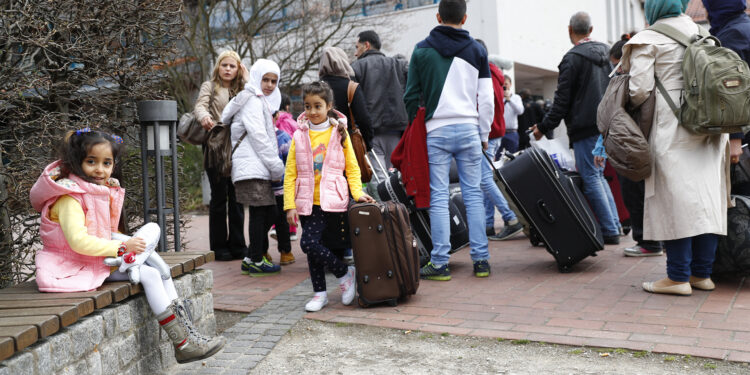An analysis published on Wednesday showed that returning Syrian refugees to their country could have negative effects on the German economy, widen the skills gap and pose a problem for sectors suffering from labor shortages.
The Syrian community in Germany – which includes about one million people, the majority of whom are refugees who fled the war in their country starting in 2015 – is the largest community of Syrians in the European Union.
A study conducted by the German Economic Institute in Cologne showed that there are about 80,000 Syrians working in so-called labor shortage professions, such as automotive engineering technicians, doctors and dentists, and in climate-related jobs such as the heating and air conditioning sector.
In the automotive engineering sector, there are more than 4,000 technicians who have recently joined the work In fields, approximately 70% of jobs cannot be filled by qualified professionals, according to the institute.
About 5,300 Syrian doctors also work in Germany. The study confirmed that their return SIt constitutes a “severe blow” to the elderly care sector, according to what Isabel Hallets, director of an association concerned with this field, told NTV.
According to statistics, there are about 2,470 employees in medicine Dentistry, while about 2,260 work in the field of child care and education, and 2,160 work in the field of health care and nursing.
There are also 2,100 Syrians working in climate-related jobs in the field of construction electricity, and 1,570 working in the field of health, heating and air conditioning.
Fabian Samsarha, an economist at the International Labor Institute and author of the study, says that Syrian workers are important to the German labor market, and added, “They contribute significantly to alleviating the skills shortage in Germany.”
It is noteworthy that another study published on Friday also showed that the return of Syrians to their country will exacerbate the labor shortage in several basic sectors, most notably health, transportation and logistics. According to the study, the return of these people “will not be dramatic on the macroeconomic level, but it may have tangible repercussions on the macroeconomic level.” regions and sectors.”
This research estimated the share of Syrian workers in the labor market in Germany at about 0.6%, or about 287 thousand people, and the percentage reaches 0.8%, including Syrians who hold German citizenship.
After the fall of Bashar al-Assad’s regime, Germany was one of the first European countries to announce the suspension of consideration of asylum applications submitted by Syrian refugees, stressing the prevailing state of uncertainty. Voices from the right and far right also rose to demand the return of refugees to Syria, in light of the approaching legislative elections on February 23, 2025.



